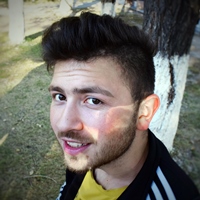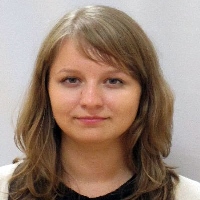HSE Students to Develop Projects for Dutch Companies
HSE School of Business Informatics has joined with Hogeschool Rotterdam to launch a new type of project work for undergraduate students. Three student teams will be involved in developing real information systems for Dutch companies from February to May.
Each team consists of about ten participants. Half are Business Informatics students at HSE, who will develop the systems, and the other half are Hogeschool Rotterdam students, who are responsible for interaction with the local commissioners and establishing the requirements. The students will work on an app aimed at delivering safety instructions on construction sites to new staff; an app for emergency helicopter pilots that will reduce patients’ transportation time (both for the company Bayards); and a system to help visitors to a festival organized by Yevgenia, a Turkish-Dutch company, find information about the event’s key activities, shop, and vote online.
Alexander Von Schmid, the project coordinator on the Dutch side, said this approach to running an international student international project has proved a success: over four years, the number of projects has grown from five small website development tasks in 2013 to 17 projects this year, which include mobile apps, complex information systems, and even special systems for the internet of things. Today, in addition to HSE and Hogeschool Rotterdam, the project involves St. Petersburg Polytechnic University, as well as universities from Ukraine and Austria.
‘Our Business Informatics programme has always included not only high-quality theoretical studies, but also practice-oriented project work’, said Svetlana Maltseva, head of the HSE School of Business Informatics, ‘The School of Business Informatics has coordinated an agreement on internships for undergraduate and MA students at S.P.I. Group (Porto, Portugal) for several years now. This year, we are trying a new approach to project work together with our partners at Hogeschool Rotterdam, and the Dutch companies’ interest in our students proves they are in demand, not only in Russia, but also on the international labor market’.
Under the terms of the project, the Dutch companies who commission the development pay an entry fee covering expenses incurred by the students coming to the Netherlands. Tatiana Repetskaya, Anton Stukanov, Roman Maltsev, and Vladimir Shilov, development team leaders, 2nd and 3rd-year undergraduate students of Business Informatics, together with Kirill Mayboroda, MA student of Business Informatics and lecturer at the Department of Information Systems and Digital Infrastructure Management, visited a three-day workshop at Hogeschool Rotterdam from February 21st to 25th. The workshop included a training programme on interaction between commissioners and developers of information systems, agile software development, as well as meetings with Dutch companies’ representatives and informal events that brought together both Russian and Dutch students.
The second stage will take place from March to May 2017 and will include project work and interaction with Dutch companies via the Scrum framework. The projects will be completed by the beginning of June, when the student teams will present the results achieved over the preceding three months to the Dutch companies.
Sergey Efremov, senior lecturer at the School of Business Informatics, supervises the teams’ preparation on behalf of HSE. ‘During the first two years of their studies, undergraduate Business Informatics students at HSE cover a good set of courses on information systems development’, he said. ‘And although our programme is not focused on training software developers, this will undoubtedly help students better understand the business processes in the field. This is the first time we have tried this approach to these projects, and our first impressions have been largely positive so far. I believe that we are on track to successfully complete all three projects this year, and that we will be able to expand the number of participants from our side next year’.

Roman Maltsev, 2nd-year student
Classes at Hogeschool Rotterdam were aimed at teaching us (representatives of business and IT) to interact using the Scrum framework. Most of the time we spent not listening to lectures, but carrying out team tasks. For example, in one of our first assignments, we had to forecast how many paper planes and boats our team would be able to make in five minutes. Three paper figures per team member did not seem that many, but that was the most complicated thing I’ve ever done. As a result, as well as all the other teams, we overestimated ourselves at first, and when we were given an opportunity to try again, we did more than we planned. The same is true for real projects – the commissioner always wants to know in advance what they will get and how long it will take them to get it, and it’s always difficult to provide precise evaluations in these terms. The best approach is not to make long-term forecasts. And Scrum is featured for iteration development in small steps (sprint), in which the commissioners participate directly, and which makes the evaluations much easier.

Tatiana Repetskaya, 3rd-year student
We learned Scrum project management methods during the three-day workshop. The most interesting part was, probably, that the lectures were always accompanied with various practical assignments, to be completed in teams.
During the first afternoon we met with Alexandra, from Bayards, and asked her questions related to the implementation of our joint project. The team that I lead is developing a mobile app for emergency helicopter pilots, which will help reduce the time involved in transporting patients and thus improve the medical teams’ operation.
See also:
Pivot to the East: A Comprehensive Study of the Cultural and Civilisational Centres of the Non-Western World is the Top Priority
China and the Chinese world, South Asia, Southeast Asia, the Arab countries, Iran, Turkey, Central Asia and Africa are gaining new significance in Russia’s foreign policy. However, we do not know enough about the Eastern countries. It is necessary to change the priorities in education, starting from grammar school. Prospects for the development of domestic Oriental studies in the context of the new stage in the development of the system of international relations were discussed at a round table at HSE University.
‘I Admire HSE Students’ Eagerness to Learn, to Discuss, to Broaden Their Perspectives’
Robert Romanowski was a ‘Digital Professor’ at HSE University in November 2021. In his interview for the HSE News Service, he talked about the specifics of online teaching, his course on Strategic Branding, and the skills that are essential for marketing professionals today.
Russia and Africa: Time to Expand Cooperation
There is major potential for economic and humanitarian cooperation between Russia and African countries. Particularly, Russian organisations and universities can help transfer competencies and knowledge in the fields of agriculture, energy, industrial production, environmental management, climate change, and public administration. Experts and representatives of African embassies in Russia discussed these issues at the round table ‘Russia-Africa Sharing Knowledge’ hosted by HSE University.
The Brain in Space: Investigating the Effects of Long Spaceflights on Space Travellers
As part of an international project conducted with the participation of Roscosmos and the European Space Agency, a team of researchers used differential tractography to analyse dMRI scans ofcosmonauts’ brains and found significant changes in brain connectivity, with some of the changes persisting after seven months back on Earth. The paper is published in Frontiers in Neural Circuits.
HSE University-Perm and the Training Centre of the Uzbek Ministry of Finance Sign Cooperation Agreement
HSE University in Perm has become the first academic partner of the Training Centre under the Ministry of Finance of the Republic of Uzbekistan. The parties have signed a cooperation agreement in education and research.
HSE University Strengthens Ties with Netherlands in Agricultural Research and Education
On November 9, 2021, HSE University signed a memorandum of understanding with Wageningen University & Research, a major university in the Netherlands and one of the leading agricultural research institutes in the world. Participants of the signing ceremony included HSE University Rector Nikita Anisimov, President of the Wageningen University & Research Executive Board Professor Louise Fresco, and Dutch Ambassador to Russia Gilles Beschoor Plug.
The Majority of Russians Do Not Support Microchip Implants
The majority of Russians would not agree to being fitted with microchip implants for any purposes—medical or otherwise. A joint study conducted by HSE University’s International Laboratory for Applied Network Research and Aventica found that respondents believe the risks of personal data leaks and misuse to be too high.
‘We Can Now Say That the Finance Conference Is Global’
The 10th International Moscow Finance Conference, organized by HSE ICEF, took place on October 29–30 online. Vladimir Sokolov, Head of the International Laboratory of Financial Economics, which hosted the conference, talks about the participants, the key presentation topics and how they will impact the global economy.
HSE University Scholars Study Green Transition Risks and Greenhouse Gas Emission Regulation
The UN Climate Change Conference is taking place from October 31 to November 12 in Glasgow. The conference focuses on preventive measures against the catastrophic and irreversible consequences of rising average global air temperatures. Igor Makarov, Head of the HSE Laboratory for Economics of Climate Change, will be taking part in the Glasgow conference. In the following interview, he speaks about the pressing problems Russia and the world are facing, and the research HSE scholars are doing on climate change.
Applications to Speak at eSTARS 2021 Conference Accepted Until November 15
HSE University and Coursera are bringing together the world’s leading researchers, professionals, education and technology leaders, and business community representatives for the fourth international research conference eLearning Stakeholders and Researchers Summit 2021 (eSTARS). This topic of this year’s summit, which will run from December 1–2, 2021,is ‘Digital Transformation: Global Challenges to the Education System’.


